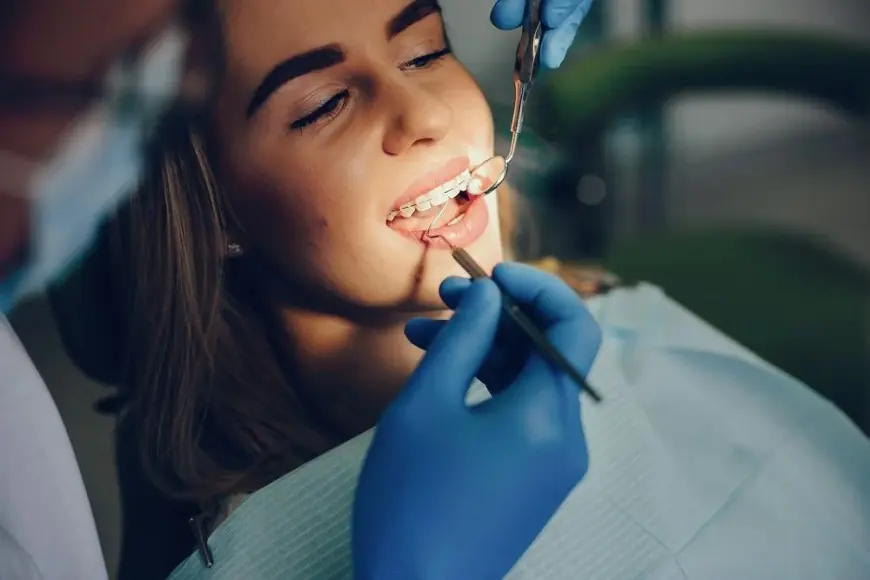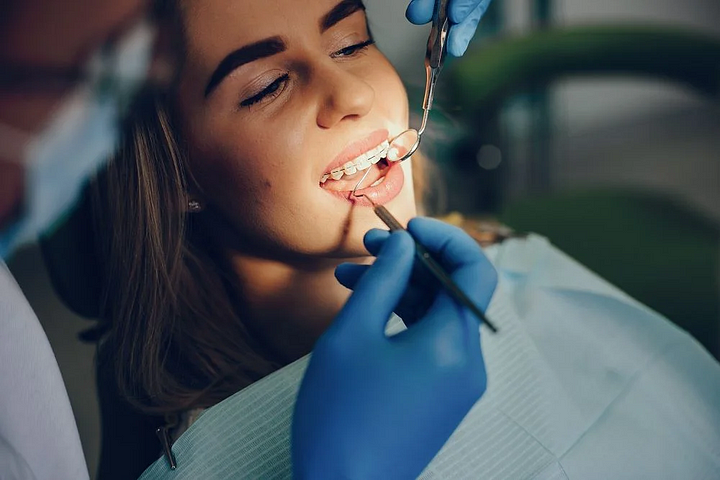The Top 5 Common Questions Orthodontists Get Asked About Braces

When it comes to getting braces in Dubai, many patients have a lot of questions. Whether you’re an adult seeking treatment or a parent looking into options for your child, understanding the ins and outs of orthodontist in Dubai care can make all the difference. This article addresses the top 5 most common questions orthodontists get about braces, providing detailed answers to help you make informed decisions about your dental treatment.

1. How Long Will I Need to Wear Braces?:
Treatment Duration:
One of the most common concerns for anyone considering braces is how long they will need to wear them. The length of treatment depends on several factors, including the severity of your dental issues, the type of braces used, and how consistently you follow your orthodontist’s instructions.
What to Expect:
- Average treatment time: Most patients wear braces for 18 to 24 months, though some cases may take more or less time.
- Factors influencing duration: The complexity of your dental concerns, such as overcrowding or misalignment, may extend the treatment period.
- Adherence to care: Following your orthodontist’s instructions and attending all check-up appointments will help ensure your treatment progresses smoothly.
Ultimately, the goal is to achieve the best possible result in the shortest amount of time while ensuring your teeth remain healthy throughout the process.
2. Do Braces Hurt?:
Discomfort During Treatment:
It’s normal to experience some discomfort after getting braces or after an adjustment, but the pain associated with braces is typically manageable. Understanding what to expect can help you prepare for these brief periods of discomfort.
What to Expect:
- Initial soreness: After getting braces, your teeth may feel sore for a few days as they begin to shift into position.
- Adjustment discomfort: Every time your braces are adjusted, you may experience mild discomfort as the wires are tightened. This typically lasts for a few days.
- Pain relief: Over-the-counter pain relievers and eating soft foods can help alleviate discomfort. You may also use orthodontic wax to cover any areas where the braces may irritate the inside of your mouth.
While braces can cause some discomfort, the pain is temporary and tends to decrease as your teeth adjust to the braces over time.
3. Can I Eat Whatever I Want with Braces?:
Food Restrictions:
When you get braces, there are certain food restrictions to keep in mind to ensure your treatment goes smoothly. Some foods can damage the brackets or wires, while others can get stuck in your braces, making oral hygiene more difficult.
What to Expect:
- Avoid sticky foods: Foods like caramel, chewing gum, and taffy can get stuck in your braces and damage the wires.
- Avoid hard foods: Hard foods such as popcorn, nuts, and ice can break or loosen your brackets.
- Cut food into smaller pieces: To minimize the risk of damage, cut hard or crunchy foods, like apples and carrots, into smaller, bite-sized pieces.
Your orthodontist will provide you with a list of foods to avoid, but the key is to be mindful of what you eat to protect your braces and maintain effective treatment.
4. How Do I Clean My Teeth with Braces?:
Maintaining Good Oral Hygiene:
Braces can make it harder to clean your teeth properly, which is why it’s essential to pay extra attention to your oral hygiene during your treatment. Food and plaque can easily get stuck in the braces, leading to cavities and gum disease if not removed regularly.
What to Expect:
- Brushing: Use a soft-bristled toothbrush and brush at least three times a day, paying close attention to the brackets and wires. An electric toothbrush can also be helpful for more thorough cleaning.
- Flossing: Use floss threaders or orthodontic flossers to help clean between your teeth and around the brackets. Flossing with braces can be tricky but is essential for preventing plaque buildup.
- Mouthwash: Rinse with fluoride mouthwash to help kill bacteria and protect your teeth from cavities.
- Water pick: A water flosser can help remove debris around the brackets and wires, providing an additional level of cleanliness.
Your orthodontist will likely recommend specific tools and techniques to ensure you maintain optimal oral health throughout your treatment.
5. Will I Need to Wear a Retainer After Braces?:
Post-Treatment Care:
After your braces are removed, you will most likely need to wear a retainer to ensure that your teeth stay in their new positions. Retainers are an essential part of the orthodontic process, as they help maintain the results achieved by your braces.
What to Expect:
- Retention phase: After your braces are removed, your orthodontist will provide you with a retainer. The duration for wearing a retainer can vary, but most patients wear it full-time for a few months and then part-time (usually at night) for several years.
- Types of retainers: There are different types of retainers, including fixed and removable options. Fixed retainers are bonded to the back of your teeth, while removable retainers are easy to take out and clean.
- Long-term wear: Even after you finish treatment, some orthodontists recommend wearing your retainer for life, though only at night, to ensure your teeth do not shift back.
Wearing a retainer as instructed by your orthodontist is crucial to maintaining the results of your treatment and preventing teeth from shifting.
Conclusion:
Braces are an effective solution for achieving a straighter, healthier smile, and understanding the process can help you feel more comfortable throughout your treatment. Whether you’re concerned about how long the process will take, whether it will hurt, or how to care for your braces, it’s important to discuss your questions with your orthodontist. By addressing these top five common questions, we hope you have a better understanding of what to expect when getting braces. For anyone considering orthodontic treatment in Dubai, consulting with a skilled orthodontist can help you make the best decision for your dental health and smile.
What's Your Reaction?
 Like
0
Like
0
 Dislike
0
Dislike
0
 Love
0
Love
0
 Funny
0
Funny
0
 Angry
0
Angry
0
 Sad
0
Sad
0
 Wow
0
Wow
0





















































